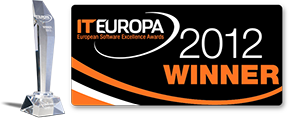Eventus in timesheet management
In early 2015 the Institute of Geodesy, Cartography and Remote Sensing launched the professional timesheet management module based on Fornax ICT’s proprietary Eventus solution for the whole institute.

By now it has become obvious that the accurate administration of management and operative tasks provide useful data not only to the given organization, during strategic planning it also offers vital information regarding the feasibility of future activities. This is why the Institute of Geodesy, Cartography and Remote Sensing deemed it necessary to install a professional timesheet management system.
The project realised in part with EU funds is meant primarily to support the day to day organization and execution of work. It enables employees to register their working hours, it generates various reports from the data entered, and it exports or graphically displays these reports. Moreover, the solution is able to obtain related data content from other systems, or provide the data collected here to other systems.
To the management the system offers a full range, comprehensible overview of tasks performed by the employees and their resource requirements, and furthermore makes the assessment of resource requirements and the resource planning easier for projects yet to be launched.
The solution based on Fornax ICT’s proprietary Eventus system allows 150 concurrent users at the moment, and further upgrades to make logging in from Android and IOS mobile devices possible are foreseeable.
The main features of the electronic timesheet management system:
- entering time worked
- generating various reports based on the data entered
- tracking the task of filling out the timesheet
- extracting and using data from other systems when needed (eg.: users present in the organisation)
Client: Institute of Geodesy, Cartography and Remote Sensing
Technology: Eventus SMB Edition, embedded Oracle
Integration: Active Directory
Timespan: February 2014.– May 2014.
Institute of Geodesy, Cartography and Remote Sensing have been actively using the system since May 2014.




